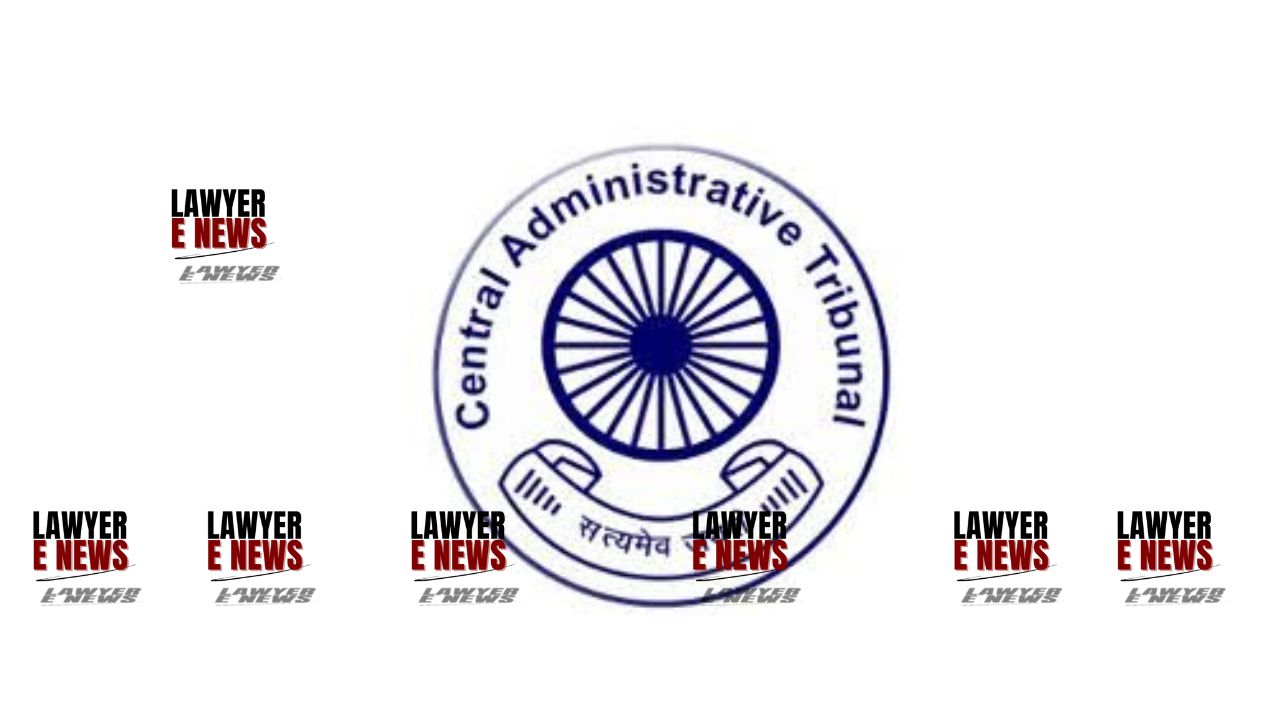-
by Admin
15 February 2026 5:35 AM



Tribunal's decision mandates pension and other benefits for a long-term temporary postal employee, emphasizing parity with regular Group 'D' employees. In a landmark decision, the Central Administrative Tribunal (CAT) Patna has directed the Union of India to extend pension and other benefits to a long-serving temporary postal worker, Shatrughan Prasad, treating him at par with regular Group 'D' employees. The judgment, pronounced by Hon'ble Shri Ajay Pratap Singh, addresses the systemic issue of non-regularization of long-term temporary workers and sets a precedent for similar cases.
Shatrughan Prasad, who served as a casual laborer in the postal department since 1981, was granted Temporary Status in 1997. Despite over three decades of service, he was not regularized. The applicant sought the Tribunal's intervention to direct the respondents to treat him as a regular Group 'D' employee for pension purposes and other retirement benefits.
The Tribunal recognized that Prasad's continuous service from 1981 and subsequent temporary status from 1997 warranted his treatment on par with regular Group 'D' employees. "It is a travesty of justice if an employee serving for almost two decades is denied pensionary benefits merely on technical grounds," observed Justice Singh.
The Tribunal extensively cited the Central Civil Services (Temporary Service) Rules, 1965, and the Central Civil Services (Pension) Rules, 1972, highlighting their applicability to temporary employees with long-term service. The judgment emphasized that 50% of the service rendered under Temporary Status should be counted for retirement benefits after regularization.
Justice Singh stated, "The applicant having served the government for almost four decades cannot be denied pensionary benefits on the ground of non-regularization. The spirit of the law is to provide social security to long-serving employees, and this Tribunal upholds that principle."
The Tribunal referenced several precedents, including the Supreme Court judgments in Yashwant Hari Katakkar vs. Union of India and Union of India vs. Kritnarain Singh, which reinforced the principle that long-serving temporary employees are entitled to pensionary benefits. "Beneficial legislation like the CCS (Pension) Rules must be interpreted to extend maximum benefit to the employees," the judgment noted.
The judgment highlighted the principle of equal treatment, stating that temporary employees performing the same duties as regular employees must receive similar benefits. The Tribunal rejected the respondents' argument that Prasad was not entitled to pension due to his temporary status, emphasizing the unfairness of such a stance.
The CAT's decision marks a significant victory for temporary workers in the government sector, ensuring that long-term service is duly recognized and rewarded with appropriate retirement benefits. This judgment not only provides relief to Shatrughan Prasad but also sets a precedent for similar cases, reinforcing the legal framework that safeguards the rights of temporary employees. The ruling sends a clear message about the judiciary's commitment to upholding the principles of justice and equity in employment matters.
Date of Decision: July 2, 2024
